New Adrenaline Park and Walking Trail in the Works at Vukovar Adica Park
May 26, 2023 - With many recreation spots and sports events regularly taking place in the city on the Danube, Vukovar is indeed full of fit life. To add to the picture, a new adrenaline park and walking trail are in the works at the famous Adica forest park.
As Glas Slavonije writes, the mayor of Vukovar signed contracts on the execution of works within the framework of the Adica project with the contractors, the companies Planum Građenje d. o. o. and Vodoprivreda Vinkovci d. d. Director Emil Tuša attended the signing on behalf of Planum Građenje, and director Željko Šarčević on behalf of Vodoprivreda. Along with mayor Penava, project manager Igor Antolović, head of the Administrative Department for Economy Kristina Bilić, as well as director of the Vukovar Development Agency Darijan Zeko and director of Vukovar Sports Facilities Ivan Szabo, who are partners in the project, were also present at the signing of the contract.
The first man of Vukovar reminded that the Adica development project is part of the Intervention Plan of Vukovar and one of the capital projects.
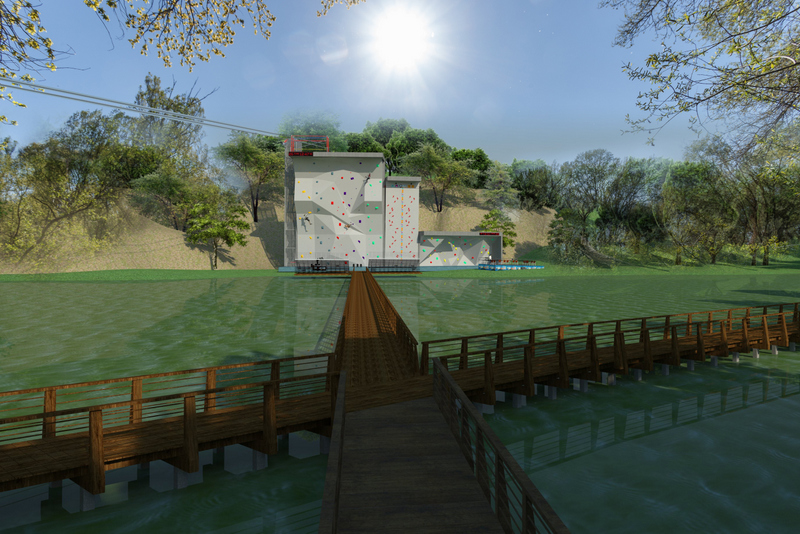
"I am happy that, after we found ourselves in a situation where the previously selected contractor ran into problems, we are continuing the project and that we managed to overcome the previously created problems and call for a new public tender, so today we are witnessing the act of signing contracts with the companies with whom we have cooperated well so far," he said, adding that the works will start soon, and the deadline for their completion is nine months from the day of introduction to work.
Project manager Igor Antolović explained that a one-kilometer wooden walking trail would be built along the Vuka River. It will stretch from the beginning of the Adica forest park to the bridge near the St. Petka church and have branches towards the left and right banks of the Vuka River. Along the promenade, Adica will receive a sports and entertainment adrenaline park consisting of high-altitude and low-lying static polygons, a 20-meter-high climbing wall, and a 470-meter-long zip line that will cross the Vuka River. Vodoprivreda Vinkovci is responsible for constructing the walking trail while building the sports and entertainment adrenaline park was entrusted to the company Planum Građenje.
The value of the construction of the walking trail along the river is 3,434,036.83 euros, and the work on the adrenaline park will cost 2,178,377.14 euros.
EUR 3,664,515.56 was secured from European Union funds for the Adica project, EUR 1,406,806 from the city budget, co-financed by the Fund for the Reconstruction and Development of the City of Vukovar for EUR 504,346.
For more, make sure to check out our dedicated Travel section.
Dalmatia in Vukovar as Part of Svi ZaJedno Hrvatsko Naj Festival
May 4, 2023 - From May 5 to 7, life in Vukovar will be all about the fifth Festival of Heritage, tourist manifestations, attractions, and destinations 'Svi zaJedno Hrvatsko Naj' (All together Croatia's Best). During the three-day program, the festival in Vukovar will gather over 600 participants from all over Croatia. It will be a unique opportunity for all visitors to get to know Croatia in a nutshell, all in one place, with all the rich cultural heritage and traditions of the country.
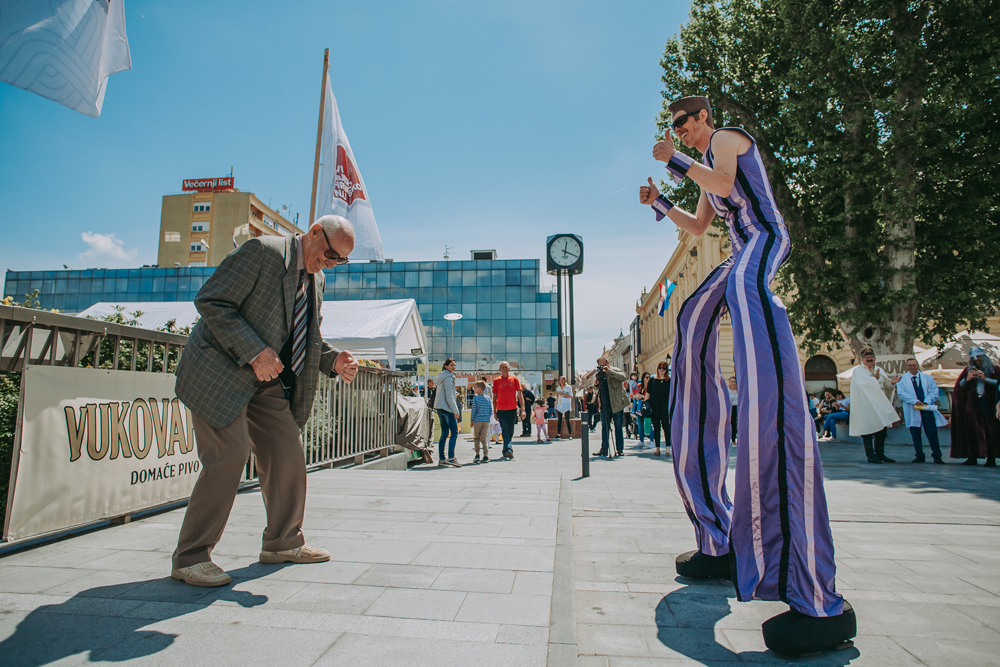
As Dalmatinski Portal writes, Dalmatia will be especially represented at the festival this year. In addition to Gibonni being this year's ambassador of the festival, this famous singer will gift the people of Vukovar and all the festival guests a big free concert to round up the first day of the festival, on May 5. During the second and third music evenings, Dalmatian songs will be presented in Vukovar, so on May 6, Klapa Šufit will have their concert as part of the Croatian tour. On the last day, May 7, Giuliano will be the star of the evening. But that's not all either. The folklore ensemble Jedinstvo from Split will once again contribute to the affirmation and presentation of Dalmatia's traditional and folk culture at the festival 'Svi zaJedno Hrvatsko Naj'. One of the most important folklore ensembles from Split will take part in the special opening of the festival on May 5 and then present themselves to the audience once again during the second day of the festival. In addition to the Folklore Ensemble Jedinstvo from Split, this year, the female vocal group Kantalica from Zadar, City Music Dubrovnik, Milan Begović from Vrlika, and Knights' Society Kumpanji from Blato on Korčula are also joining the festival.
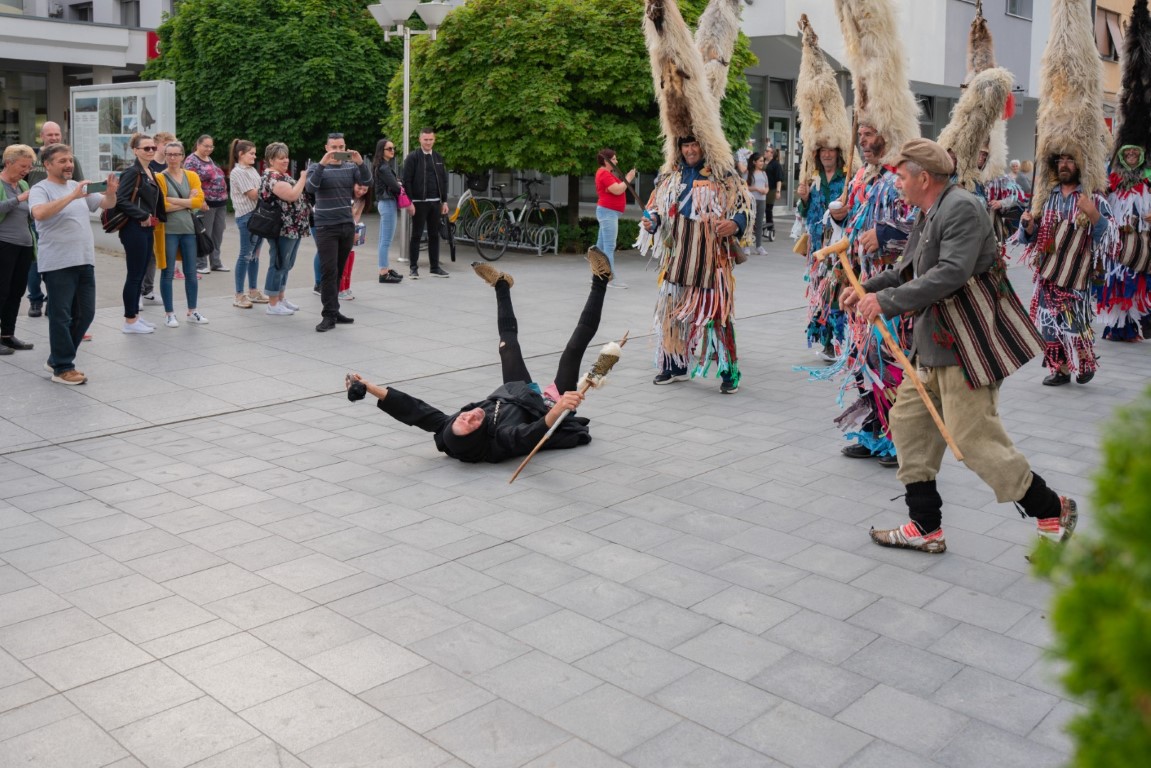
Other performers at the festival include the Šokadija Association from Babina Greda, KUD Ravnica from Stari Perkovci, KUD Gorjanac with Gorjanske Ljelje (queens), KUD Ivan Goran Kovačić from Zagreb and many other KUDs. Visitors can enjoy the richness and variety of vocal and dance performances of cultural and artistic societies from all over Croatia.
This year, the Sinj Alkari are joining the festival again. The previously mentioned military historical unit of the Knights' Association Kumpanjija from Blato and the Frankopan Guard of Grobnik will participate in the program. In addition, falconers will entertain visitors with a special program, as will the Đurđenovac horn players.
One of the main acts of this year's festival will be Lipizzan horses, with the equestrian stage show 'Dance of Baroque Horses of Eltz Manor.' Lipizzaner horses were the latest inclusion in the UNESCO Representative List of the Intangible Cultural Heritage of Humanity, so this year, festival visitors, big and small, will have the opportunity to learn more about the tradition of Lipizzaner breeding.
Among the famous tourist events from Croatia, as part of the festival, the oldest local gastronomic event from Vrbovac, 'What Our Ancestors Ate,' will be presented as part of the festival is being held this year for the 42nd year in a row.
In addition to numerous interesting educational workshops for children and adults, visitors can also expect an interesting Eco-Ethno Fair on the city promenade, as well as a Flower Fair.
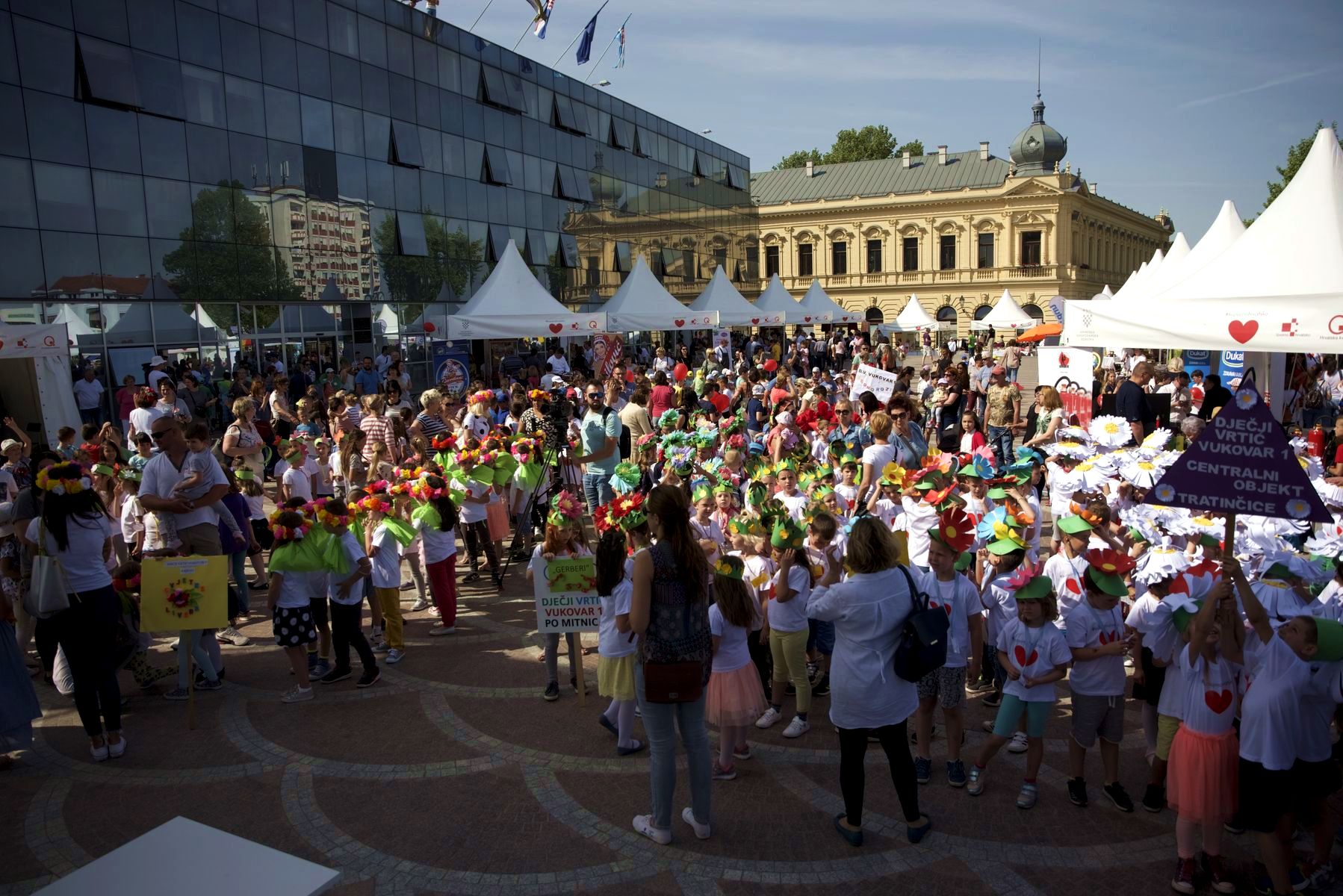
The festival will be held in three locations: on Trg Republike Hrvatske, where the central stage and stands are located; on the promenade, where visitors will be able to enjoy food and wine from all over Croatia; and in the back garden of Eltz Manor, where the equestrian spectacle will also take place.
The presentation of intangible cultural heritage, tourist manifestations and attractions from all over Croatia, children's programs and creative workshops, and great concerts with performances by dance groups are a guarantee of good fun for the whole family at this truly unique festival that has become a Vukovar tradition. It should be emphasized that the festival is internationally recognized - it is the winner of the EFFE Label, the European quality mark for exceptional cultural and artistic festivals, and the winner of the Simply the Best Tourism award.
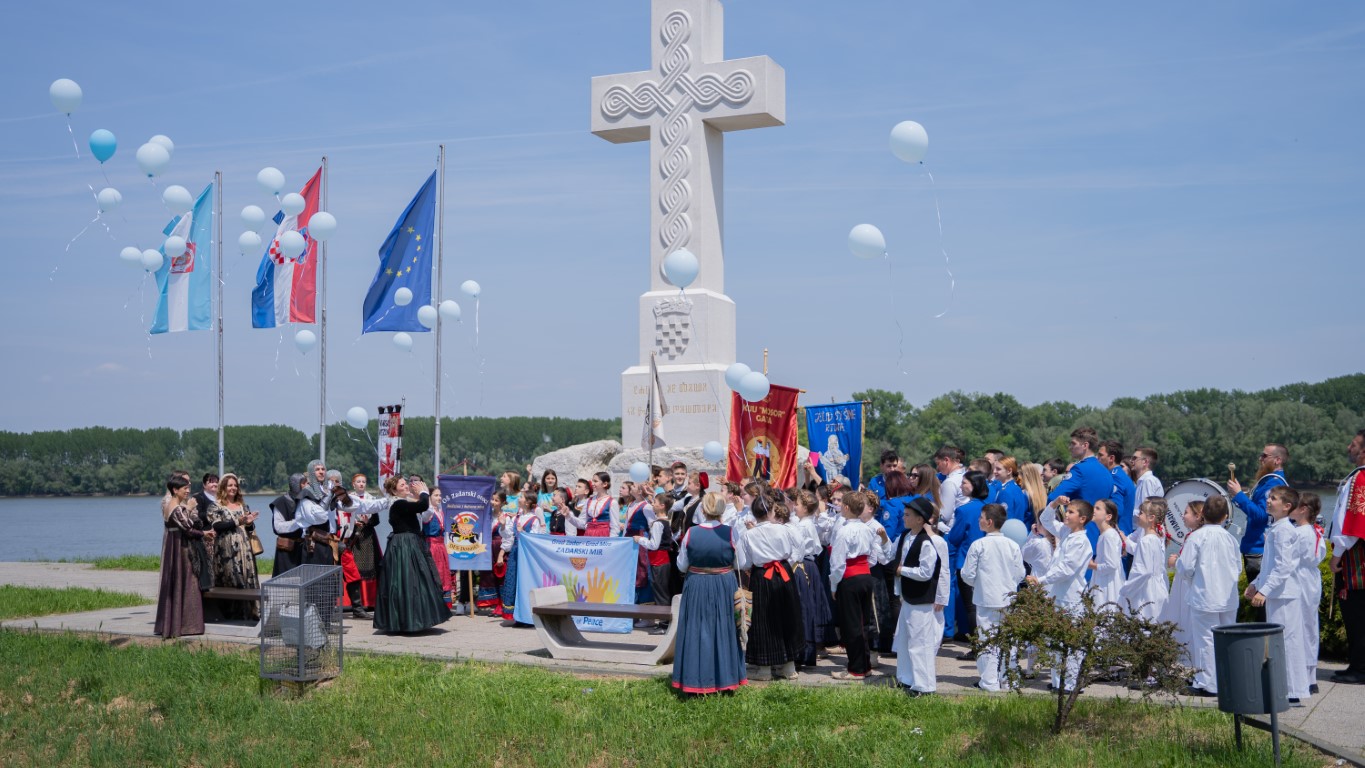
For the fifth year in a row, the festival Svi zaJedno Hrvatsko Naj has been jointly organized by the Tourist Board of the City of Vukovar and the Agency Organizatori bez granica, led by Zadar producer Aleksandar Kovačević, in cooperation with the City of Vukovar.
All contents of the festival Svi zaJedno Hrvatsko Naj are free for visitors, and you can find a detailed program of the festival on the official website.
For more, make sure to check out our dedicated Travel section.
Remains of Ten Missing People from Homeland War Found Near Vukovar
April 19, 2023 - As of today, Croatia has 1,812 people missing from the Homeland War. After 30 years of waiting, four families from the Vukovar area identified the remains of their loved ones.
As 24Sata writes, in the mass grave of Šarviz dola near Negoslavci, discovered in February of this year, at least ten remains of people killed in the Homeland War were exhumed, and DNA analysis has identified four people so far.
These people were Ilija Krivić (59), Antun Šter (29) and Josip Bali (41) from Vukovar, and Ivan Ilanić (58) from Berk. Their families came to the Vukovar hospital to identify their remains and get the results of the DNA analysis, which confirmed that they were indeed these people.
"For some of you, this is the end of the wait, and for some, the agony goes on," Ljiljana Alvir from the Association of Associations of Missing Persons said on that occasion. Minister of Veterans Affairs Tomo Medved was also present at the identification and conversation with the families. He said that DNA analysis for the other remains is expected to be completed soon, and he pointed out that in the last ten years, 248 people killed in the war have been found and identified.
"My brother Antun disappeared in September 1991 in Vukovar. He was 29 years old. He lived in the Vučedol bungalows with his mother and a few other women and men. When the army invaded Vučedol, they took my brother and all the other men, including my father-in-law, who was also missing. We never found out where they were taken. Mom was in the camp for two months with the other women. She died two years ago and always said she would die before finding her son's bones. And, well, she didn't live to see it. It's terrible. My father also died during the war; we buried him in the yard because the city was shelled. One of my brothers killed himself in 1996 in Zagreb with a bomb; another died in Austria, escaped the war, and died there on a construction site; the third was killed in Sotin; we found his remains and buried him in 2007. I was afraid that I would never find my brother", Marija Šatorović, the sister of the found Antun Šter, said in tears, adding that her last memory of her brother was from the time of the heaviest shelling of Vukovar when he came to her door with a basket full of fish.
"Shells were falling outside, and he was fishing with a friend. He knocked on my door, brought me a bag full of fish and vegetables from his garden, and said, 'Here, so you won't be hungry.' That was the last time I saw him", says Marija.
For more, make sure to check out our dedicated News section.
Could an Unpopular Measure End Up Being Borovo's Best Solution?
March the 16th, 2023 - Borovo has been swimming in troubled waters for a long time now, but could an otherwise wholly unpopular measure actually end up being the best solution of all for this enfeebled company? Maybe.
As Poslovni Dnevnik/Marija Brnic writes, a couple of years ago, it seemed that everything regarding the survival of Borovo had finally fallen into place properly, a restructuring programme was fully drawn up, of which the consulting company KPMG was in charge. Since then, the extension of the CERP guarantees has only been approved in order to postpone the repayment of loans to the state banks for yet another year, thanks to which Borovo is still keeping afloat, and the new deadline for another such decision is coming up in just a month.
In CERP, which is the 100 percent owner of this much loved Vukovar-based footwear manufacturer, the case of its restructuring is considered one of the top priorities in 2023, after several problematic cases in the state portfolio were finally closed over the past two years. At the same time, the process within Borovo stands stagnantly right where it was two years ago - the restructuring proposal prepared by KPMG clearly didn't meet the expectations of the relevant ministries.
However, on the other hand - when it comes to Borovo, no deadline was actually set in which the case should finally be closed, either through a new model of operational and financial restructuring, an attempt at privatisation or the worst case scenario - bankruptcy.
Although bankruptcy is something to be avoided like the plague in Croatia, there are those working within the ministries of economy and finance who see this very solution as the best one. In their opinion, the projections from KPMG's proposal fail to offer what is needed, and instead only work to postpone the solution of the problem and prolong Borovo's limbo and uncertainty. This is because it starts from some basic recommendations for improving business, such as reducing overhead costs and the number of employees, changing the production profile and focusing on more profitable programmes, and finally finding a good strategic partner. According to the assessment of the relevant ministries, Borovo will continue to remain in a difficult state in which it will hardly manage to attract any serious investors seeking a safe project.
For this reason, as has since been learned, it was requested that KPMG define much more clearly what it would to to ensure and enable a long-term solution without bankruptcy threats and then to find a strategic partner, and that the programme be organised so that it can receive the approval of the European Commission (EC). That something is simply not right with the existing solution was also confirmed by the President of the Board of Borovo, Gordana Odor, who said the following:
"KPMG prepared a restructuring plan one year ago, but it hasn't yet been adopted by the relevant ministry and will have to be refined by KMPG. The main complaint of the ministry is the lack of a strategic partner that would be a guarantee for the survival of Borovo,'' said Gordana Odor, adding that when it comes to Borovo, the bigger picture must be looked at.
First, as she explained, it's actually very difficult to find a private investor who is ready to take over Borovo with all of its accompanying problematic buildings on an area spanning 13 hectares. This is full of unresolved property-legal disputes that are being conducted on the territories of both Bosnia and Herzegovina and Serbia.
According to the current restructuring plan, the state should recapitalise Borovo with 92 million kuna, which would close its existing liabilities to the banks. The share capital of Borovo is at the level of 316.7 million kuna. The assessment of the Management Board and KPMG was that this would enable better positions for the search for strategic partners and investments in the modernisation of Borovo's production, which normally also takes place on machines from 1940, and for which the company could finally rely on European Union funds. In Borovo, they're convinced that, once the company is relieved of all of its loan debts, it can meet all of its obligations and conduct its business properly.
According to the first data for 2022, revenues compared to the previous year have increased by 2% and are at the level of 10 million euros. However, business expenses grew much more. On average, total material costs increased by 23%, wage costs by 6.5%, and the largest increase of 100% refers to gas, while energy costs increased somewhat more slowly, due to government measures, by 20%.
All other input resources had growth trends of 10 to 20 percent, especially leather. An additional cost was a 12% increase in workers' wages, which is a significant increase for a labour-intensive activity, which also increased costs of about 5 million kuna. Overall, the increase in costs resulted in a loss of 9 million kuna for Borovo.
"Under these circumstances, we had to adjust our operations and we placed the emphasis on optimising procurement, production, storage and transportation costs, with the goal of maintaining existing liquidity," explained Gordana Odor. As for the number of employees, currently their number has fallen to the lowest level so far - 563.
"Borovo is aware that in times of crisis it has to make business adjustments for the conditions ahead, but we certainly need help and the involvement of the state, which we have been talking about for several years now,'' concluded Gordana Odor, noting that we're still talking about the largest employer in the entire Vukovar area which employs mostly women, and that they have spent most of their working lives working for Borovo and have no other qualifications.
The problems faced by Borovo will be on the agenda of the CERP Board of Directors as early as next month, in order to consider another extension of the guarantees for loans that the company has in the amount of 6.1 million euros each, for which the state's shares in Podravka, Koncar and HT are pledged as insurance.
However, before that, representatives of the Management Board, KPMG, CERP and the relevant ministries will need to sit down together in order to shed light on the current ambiguities surrounding the preparation of the final proposal on which the future of the company depends entirely. The reason that no expedient solution has been found for many years lies in the fact that Borovo is not only a commercial and economic issue, but is also burdened by the political context and inter-ethnic relations between Croats and Serbs, as well as conflicting relations between local and state authorities, which further complicates matters.
For more, make sure to check out our dedicated business section.
Vukovar Water Tower Had Over 111 Thousand Visitors in 2022
February 6, 2023 - The Vukovar water tower had 111,133 visitors last year and 210,128 since its opening on October 30, 2020, as stated today at a press conference.
According to the Vukovar mayor Ivan Penava, the water tower generated an income of HRK 5.7 million and a profit of HRK 2.5 million in 2022, writes Index.
23 people employed at the water tower
"Today, it employs 23 people, and the achieved business results show that the direction of its renovation was a good choice, not only in a symbolic sense but also from the aspect of the tourist attractiveness of Vukovar, as well as the Croatian Danube region. This includes the profitability and business of private, accommodation, and hospitality facilities in the area of Vukovar and its surroundings", said Penava and thanked everyone who participated in any way in its reconstruction.
He announced further investments, recalling that public procurement for a new souvenir shop worth three million kuna was carried out. "I am sure that the Vukovar water tower will continue to delight its visitors in the future, and their good reactions are an excellent indicator of the value of our vision," said Penava.
Director of the Vukovar water tower, Mirela Janković, said that the number of visits in 2022 compared to 2021 was 30 percent higher, and revenues grew by 20 percent.
New content
"Given that our visitors keep coming back again and again, we try to introduce new content, so we set up boards with QR codes where all visitors can see how the Water Tower looked before the renovation. Also, two projects are underway - the ERASMUS + project and an augmented reality project," said Janković and added that for those who cannot visit them, "there is the possibility of a virtual tour."
She reminded that from February 1 this year, the citizens of Vukovar can buy an annual ticket and use it ten times a year.
The restoration of the Water Tower began in 2017, and more than 7,000 Croats from the diaspora, Croatian citizens, and numerous Croatian cities, municipalities, counties, and companies joined the campaign to collect donor funds for the restoration. The renovation cost HRK 46 million, of which HRK 39 million was collected through donations.
For more, make sure to check out our dedicated News section.
Vukovar Best Croatian City for Education, Youth, Demography, Social Policy
December 5, 2022 - For the fifth year in a row, Hanza Media and the Gradonacelnik.hr portal selected the best cities in five categories based on detailed analysis and with two special awards, Smart City and Eco City. This year, Vukovar won the title of the best Croatian city in the categories of education, youth, demography, and social policy.
Ivan Penava, the mayor of Vukovar, attended the award ceremony in Opatija on December 1.
"According to FINA data, competent ministries, and specialised agencies, Vukovar is constantly at the top of numerous rankings in Croatia according to various parameters, from investment in education, youth and family, the number of children enrolled in kindergartens, to the total income of entrepreneurs in 2021. I consider it my duty to keep Vukovar at the top and make it the best. This award achieved in the competition of big cities is the crown of many years of dedicated work of the City Administration of the City of Vukovar and is a confirmation of the enormous progress of Vukovar," said mayor Penava.
According to research based on data from the Ministry of Finance of the Republic of Croatia, data from FINA on the execution of the budget in 2021, and analysis by the portal Gradonacelnik.hr, the City of Vukovar ranked 5th in the Republic of Croatia in terms of allocations for education.
In 2020, regarding allocations for family and children, the City of Vukovar took 3rd place with 193.75 kuna allocated per capita and 9th place with 2.19% of total city budget expenditures assigned.
Recall, the gift amounts of the City of Vukovar for newborn children were increased in 2021, and the City of Vukovar was the first city in the Republic of Croatia to introduce a unique demographic measure of co-financing overhead costs for families with three or more children up to 16 years of age.
Vukovar also stands out for with some of the lowest prices of kindergartens in the Republic of Croatia, which is 490 kuna for the first child, 441 kuna for the second child, while kindergarten is free for the third and every subsequent child, and from this year, the afternoon shift is also provided in Vukovar kindergartens.
In Vukovar, in recent years, the city's kindergartens have recorded a constant and continuous increase in the number of children enrolled. According to independent research, Vukovar is the second city in Croatia regarding the number of children enrolled in kindergartens!
For years, the city of Vukovar has been providing primary school students with the necessary school materials as well as the help of teaching assistants. Through an EU project, free meals have been provided to all students at risk of poverty.
Extended stays have been introduced in 6 out of 7 primary schools (expected from the summer semester and in the remaining newly renovated school of N. Andrić), Christmas presents have been a must for all the children of Vukovar, as well as free summer holidays on the Adriatic for the most successful primary school students.
Through high school education, the City of Vukovar supports young people by fully financing city bus transport tickets, co-financing intercity bus transport tickets, and providing stipends for high school students in deficit occupations in the amount of HRK 400.
It helps students from the area of the city with scholarships of 500 to 1000 kuna, it co-finances the intercity transport of regular students in the area of two counties - Vukovar-Syrmia and Osijek-Baranja, and the best ones who finish the academic year with an average of 4.50 to 5.00 are rewarded by the city of Vukovar with 1000 kuna.
It should also be noted that the works on the renovation of the new building of the Polytechnic Lavoslav Ružička Vukovar have been completed, so Vukovar students will soon enjoy the highest standards of education. The project is part of the Intervention Plan of the City of Vukovar, and its total value is HRK 66,439,727.54.
The housing program for the necessary staff in the area of Vukovar is also being successfully implemented, so in the last three years, 59 staff apartments have been allocated using this model.
Bjelovar, Čakovec, Pazin, and Velika Gorica also competed in this category. The City of Vukovar sincerely congratulated them and all other nominated cities and award winners.
For more, make sure to check out our dedicated Lifestyle section.
Vukovar 2022 Remembrance Day: Visitors are Gone, the City Remains
November 21, 2022 – Wherever you find yourself around the 18th of November, Vukovar will be with you. Whether you like it or not, the name will follow you like a shadow; it will keep calling you, whispering, "Think about me." This year’s day has passed. The visitors have all gone, and the city once again remains. It is time for the first TCN Vukovar 2022 Remembrance Day reflections through the eyes of a resident. Big ask. As a tourist guide here and someone who has written about the city many times before, thinking about what to say to contribute to the discussion in a valuable way is a daunting little task. No words would be enough, yet it feels like four are all we need: We are still here.
1991 – 2022. It has been 31 years. It sounds like a long time, but it feels like time has stood still on the day. Something feels different with every year that passes by, but something is always the same. It’s hard to name it; I can’t put my finger on it. It happens if you live here. You learn something every time you meet someone new. New information, new emotions, new reasons to laugh or cry. But you connect in the old way. And there are two sides to that – the lessons are hard, but they force you to grow. Like Vukovar has been growing. With and without the parade. With and without politics. During November and the remaining eleven months.
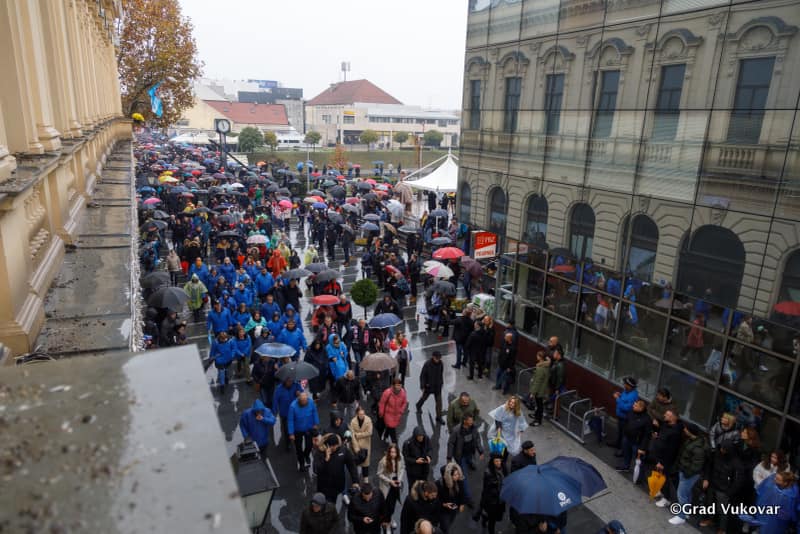
18 November 2022 (Photo by Grad Vukovar 2022)
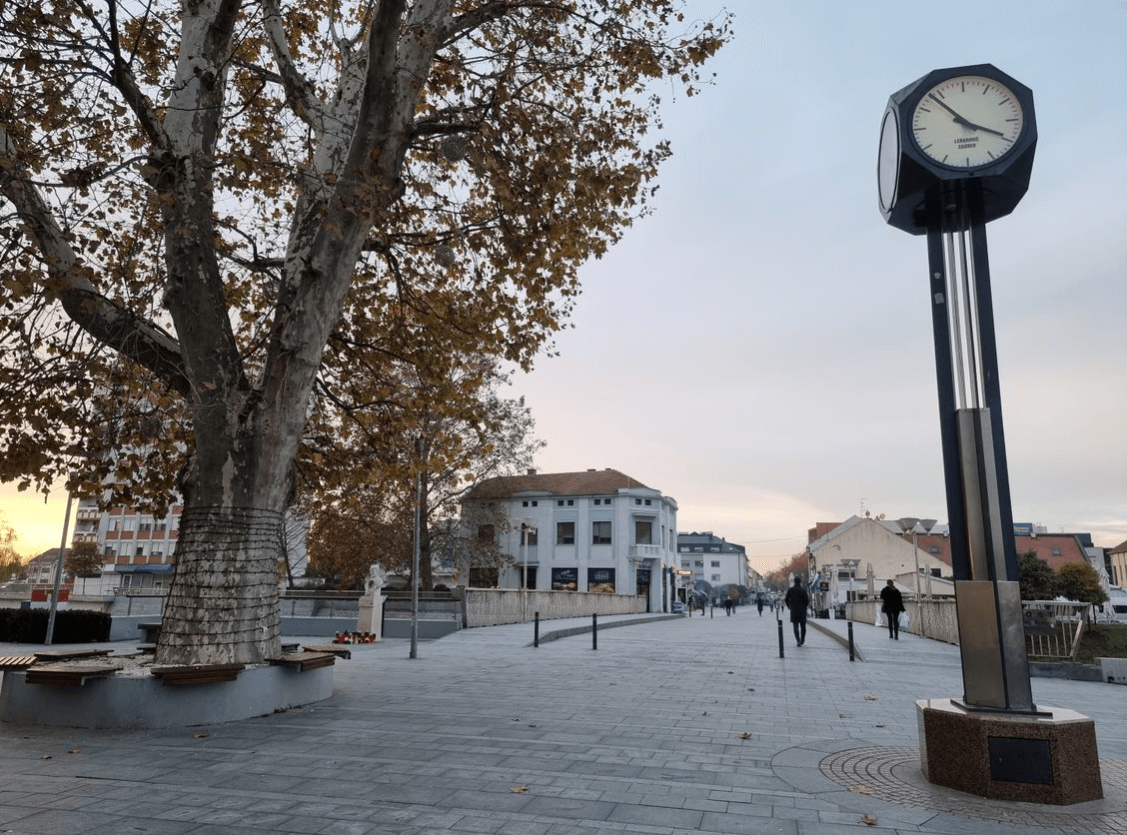
Jean-Michel Nicolier bridge (Vukovar 2022)
If you ask anyone from Vukovar to talk about it in November, they are likely to do at least one of the following things: politely ask you to move on and talk to someone else, tell their family’s story, or ask where you’ve been by now. These are some of the ways people deal with what happened here and what the reality is now.
Some don’t want to or can’t talk about it. Shake their hand and move along.
Some find it easier to tell their stories; they need compassion, appreciation, and a thank you for your sacrifice. They will open their homes and their hearts to you. Sit down with them, let them make you a cup of coffee, and listen. Cry with them, laugh with them. At times feel overwhelmed. And if they say they don’t expect you to understand, don’t believe them. Of course, you should understand. It’s not that complicated; what happened here. The human experience was reduced to its lowest form. Houses were burned, families broken apart, and lives ruined on all sides of the flag. Keep that in mind, and be respectful. Walk the parade, light a candle, and say a prayer. Remember that the whole point is to thank those who gave their lives for you to walk free and never allow that to happen again.
On the other hand, you could meet people who had nothing to do with the war, whose families were lucky, or who ended up moving to Vukovar recently. Your instinct may be to ignore them; it’s not about them. Don’t. Listen to them carefully. They live here now by choice or by fate. The city is theirs, and the city is them just as much as it is you who visits, who remembers, and talks about it.
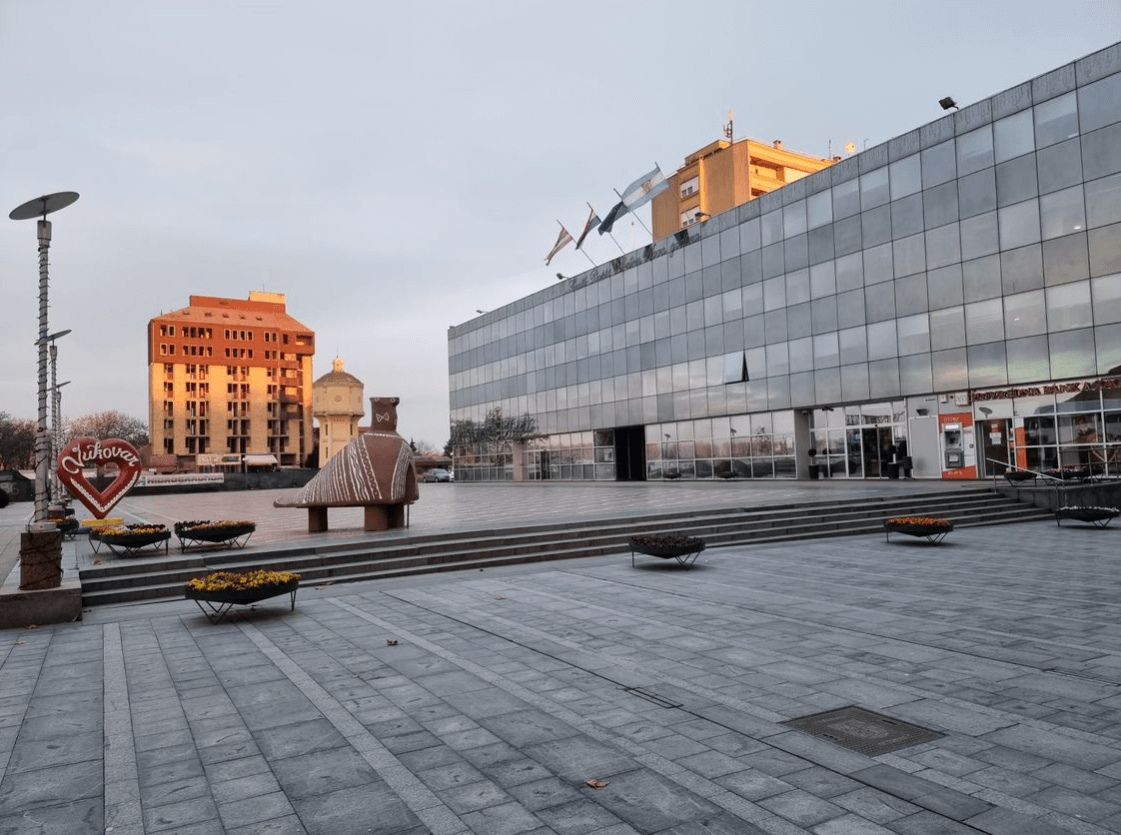
City centre Vukovar 2022 (21 November)
That brings us to the message I would like to send this year. The message that rings painfully accurate whenever we hear our co-residents say it to the cameras pointed at them in November. Come to Vukovar on the 18th, do the thing and take the pictures. We appreciate it; we really do. Without your support, we wouldn’t even be where we are today.
But don’t let that be your only visit. Do not reduce our city to pain, our streets to the parade. Recognise the artisan shops under the baroque vaults, the business that blooms daily. Sit down for a hearty meal and chase it down with a cold Vukovarsko brewed right here. Wear the Borovo shoes, which still promise and provide quality. Check out the municipal museum or hop over to Vučedol to go on a journey of five thousand years. Come and see July and August – take it easy swimming in the Danube, or get your culture fix at the Vukovar Film Festival. Run, walk, or cycle kilometres of routes through plains and forests. Try fishing for dinner.
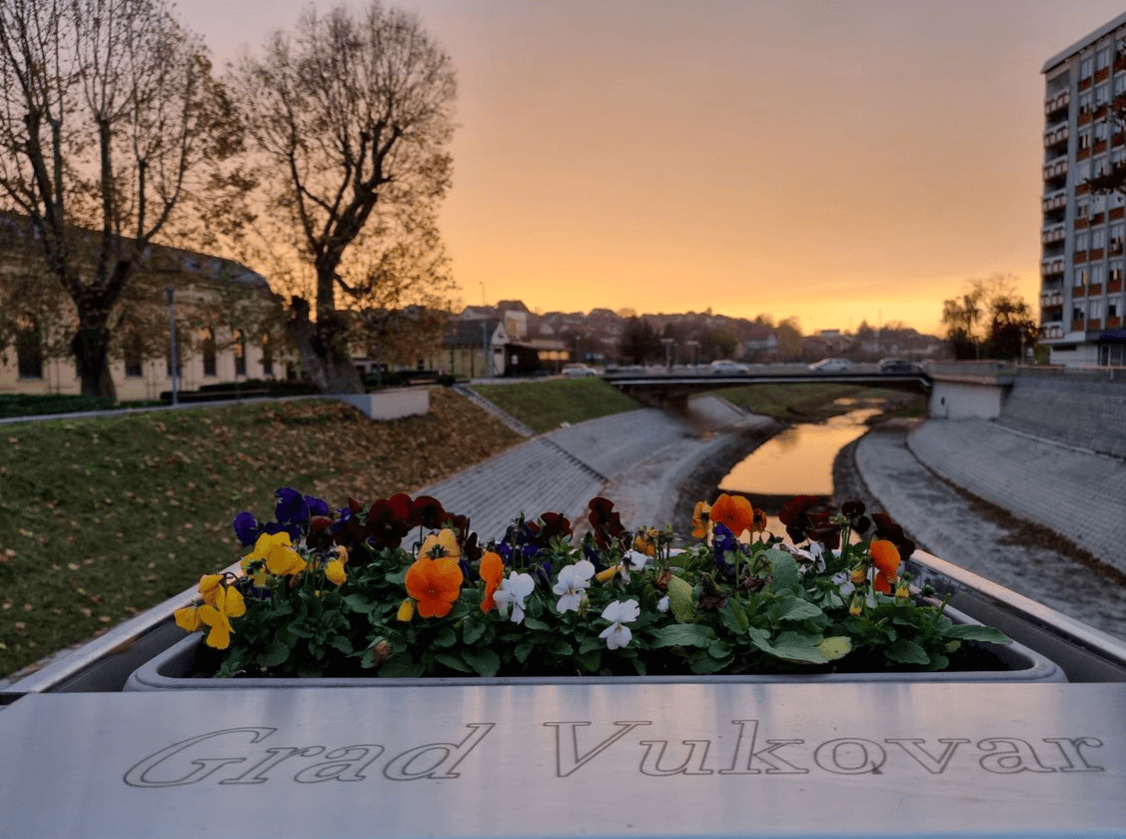
Like in many other places in Slavonia, life is hard in Vukovar. Many leave in search of a somewhat normal life. Not because they want to but because they have to. They will come back, though, because enough of Vukovar’s driving force is still here. Those who stay and those who come to Vukovar refuse to live in the bubble of the 18th and have decided to give Vukovar what it needs and what it deserves. Love, laughter, optimism, and friendship – every day. Never forget its sacrifice, and never stop talking about it. But never ignore its future and never underestimate the willpower of its children.
For more, make sure to check out our dedicated Travel section.
Wild Grass That Never Goes Away: Vukovar Volunteer Jean-Michel Nicolier
November 14, 2022 – The 18th of November is around the corner. The day that inspires the most twisted mix of feelings in many of Vukovar's residents. Sadness at the base. Heartbreak, nostalgia, frustration, gratitude. Hope. All of Croatia comes together to commemorate the sacrifice of Vukovar for its homeland. Remembering those who gave their lives to defend our home almost feels like a new experience every time. Reading their names is one dimension; reading the years is an entirely different one. One more painful than the other. A different story stands out every year. This time, we will take a moment to share the legacy of one of the youngest foreign volunteers, Jean-Michel Nicolier.
On the 18th of November 1991, Vukovar fell into the hands of the occupying forces. Our families, neighbours, friends, all those who spent three months locked away in underground shelters, were let out and sent on their way towards Zagreb, Belgrade, Novi Sad, who knows. Some of them were lucky enough to reunite with their loved ones, but many of them learned that their loved ones were gone or couldn’t find them anymore. All of them had to say goodbye to their city. November 18, 19, and 20 were days when many families of the volunteers who came to fight for Vukovar received the worst kind of news. Or the only thing even worse than that – no news at all.
Jean-Michel Nicolier, “the Frenchman,” was born in Vesoul, France, in July 1966. In July 1991, at barely 25 years of age, he travelled to Zagreb to fight for Croatia. He had seen the news of war on TV and decided that he wanted to help. I want to help these people; they need me. I must go, but I'll be back. You know I'm a wild grass that never goes away. Those were Jean-Michel’s words to his mother, who begged him not to go. He was mobilised into a HOS unit and spent two months fighting at Duga Resa. In September, he was among the last groups of volunteers to arrive in Vukovar. He fought in the Sajmište area, where the battle was extremely difficult and constant. On the 9th of November, he was wounded and had to remain hospitalised.
In the hospital, he was interviewed by a French TV crew, and this is how Jean-Michel Nicolier described his days in Vukovar: “I've lost too many friends, I've seen too many people cry too much suffering. I have been advised several times to leave Vukovar and return to France, but I stayed. We lost. I knew it would be difficult, but I didn't think it would be this terrible, especially for civilians. I came to Vukovar as a volunteer. It's my choice, for better or for worse.
Journalist: Why as a volunteer? – Because I think they need help. That's why I chose their side.
Journalist: What does Vukovar mean for you? – A slaughterhouse. A slaughterhouse. Slaughterhouse.”
Nine days later, Jean-Michel Nicolier, the Frenchman, was taken to the Ovčara concentration camp, along with many other volunteers and civilians from the Vukovar hospital. According to Dragutin Berghofer Beli, he stood up even when his name was called at the camp, where he suffered torture. On the night of the 21st of October, he was murdered by Spasoje Petković, nicknamed Štuka, who then proceeded to rob him of his last 20 Francs. The murderer himself confessed to this at the Belgrade War Crimes Court. Claiming that he was a frightened soldier who feared for his life, Petković went from being the defendant to a penitent witness, earning a privileged status, freedom, and the position of a protected witness, which guarantees that he will never be extradited to Croatia.
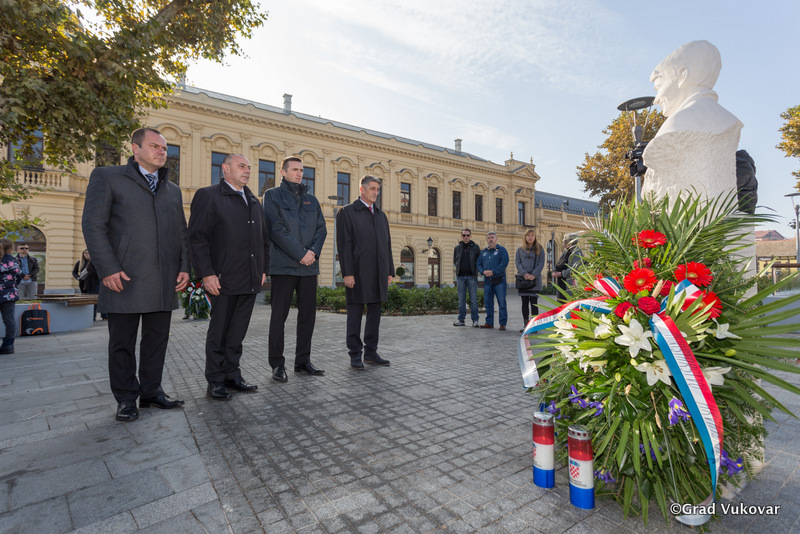
Grad Vukovar
Jean-Michel Nicolier’s body is yet to be found. It is possible that he was buried in one of the ditches of the Ovčara mass grave which were moved, or that he ended up in the Danube, but there has been no evidence to confirm either. His family still visits Vukovar, his mother and brother have been in several interviews, and his mother has written letters to Jean-Michel, and about him to the Croatian Government.
Not many knew a lot about Jean-Michel until Višnja Starešina’s documentary film on Siniša Glavašević, Zaustavljeni Glas, came out in 2010. In 2011, the NGO Veterans' Association, Dr. Ante Starčević from Tovarnik, led by Antun Ivanković, took a particular interest in Jean-Michel, his life, and his story. They contacted his family, wrote about him to the president’s office, and eventually ensured his name was listed among the volunteers. Jean-Michel was posthumously awarded the Vukovar-Syrmia County Tribute for love, loyalty, and bravery in the Croatian War of Independence. In 2012 Nevenka Nekić published the book Jean ili miris smrti (Jean, or the Smell of Death). In 2014, the renovated main pedestrian bridge in Vukovar city centre was named after Jean-Michel, and in 2015 his bust was installed next to the bridge. May Jean-Michel rest in peace.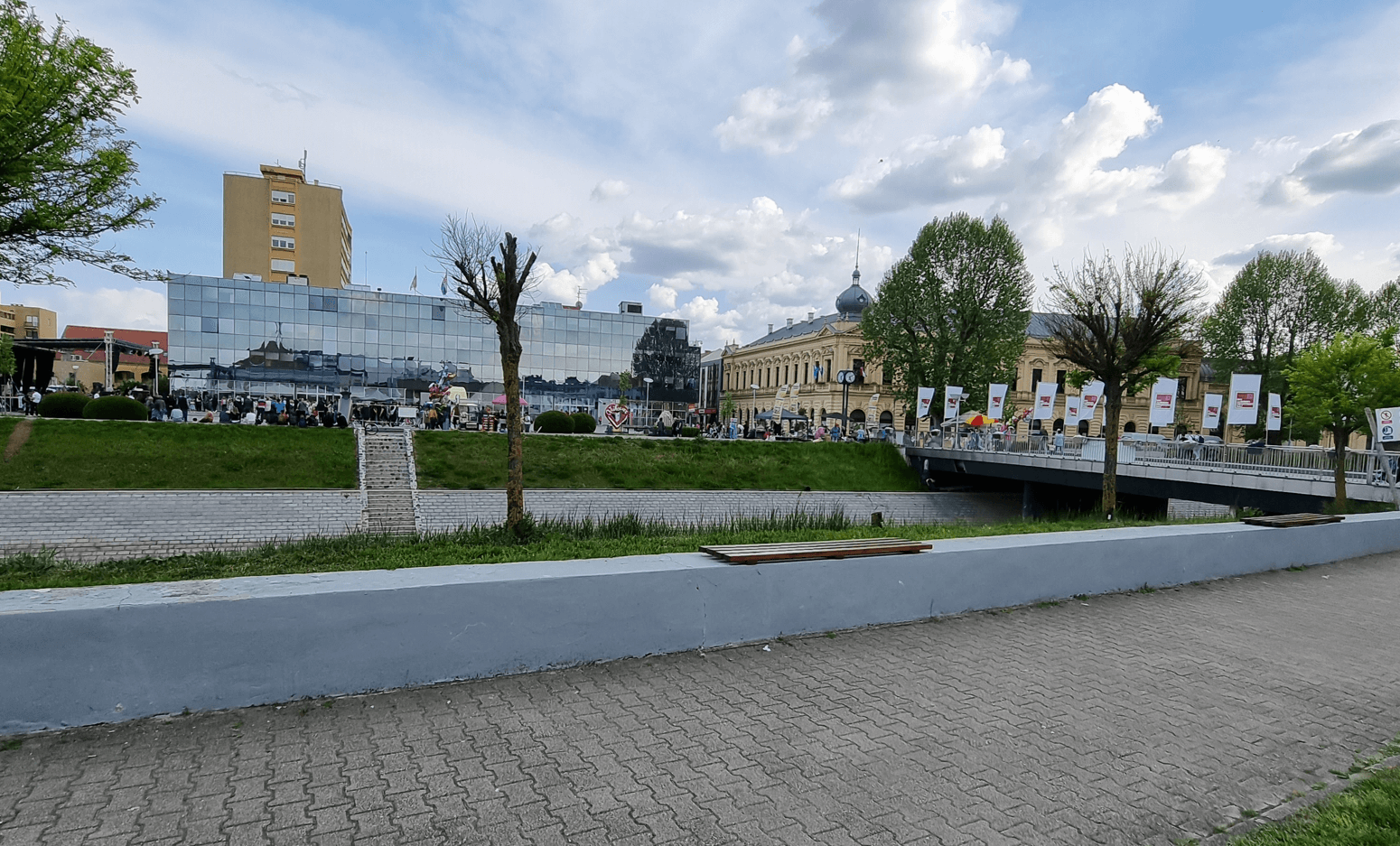
View of the Jean-Michel Nicolier bridge (right)
For more, make sure to check out our dedicated Lifestyle section.
Programme Published for Vukovar Remembrance Days 11-20 November
November 8, 2022 – The city of Vukovar has published the full programme for this year’s Remembrance Day. The full schedule will stretch over ten days, from Friday, the 11th November, to Sunday, the 20th.
The scope of the programme is broad, with institutions such as the county hospital, the city library, its museums, veteran associations, and more all taking part. On top of the events happening in Vukovar, the official programme includes other Croatian cities where candles will be lit on the evening of the 18th of November.
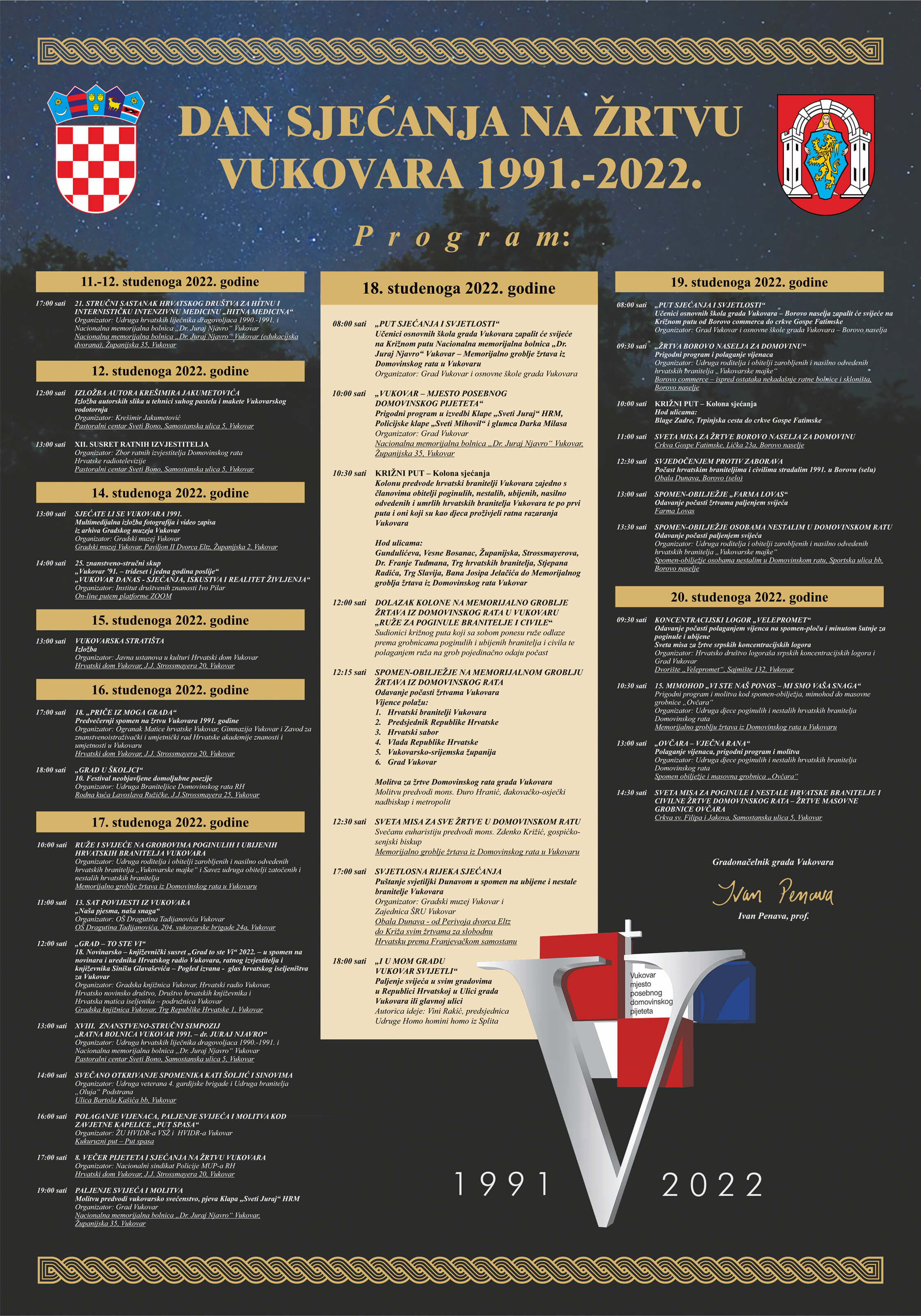 Grad Vukovar
Grad Vukovar
The first of the events included in the programme will be a professional meeting of the Croatian Society of Emergency and Medical Intensive Care at the National Memorial Hospital in Vukovar at 5 pm on Friday, the 11th and Saturday, 12th November. On Saturday, the 12th, the Sv. Bono Centre by the monastery will host an exhibition of artwork and models of the Vukovar Watertower and a meeting of war reporters.
On Monday, the 14th, the Municipality Museum is organising a Multimedia Exhibition of their archive photos and videos, while the Institute of Social Sciences Ivo Pilar will host an online seminar titled Vukovar Today – Memories, Experiences and the Reality of Living.
On Tuesday, the 15th, the Croatian Culture House (Hrvatski Dom) is hosting an exhibition titled Vukovar Execution Grounds, opening at 1 pm. The same venue will host the 18th Stories From My City Memorial on Wednesday, the 16th at 5 pm. The Association of Vukovar’s Women Veterans is hosting the 10th Festival of Unpublished Patriotic Poetry Grad u Školjci (The City in a Seashell), starting at 6 pm at the Ružička House.
On the morning of Thursday, the 17th, at 10 am, the associations of families of the city’s volunteers will lay roses and candles on the graves of Vukovar’s defenders. At 11 am, the Dragutina Tadijanovića primary school will host the 13th Vukovar History Lesson titled Naša pjesma, naša snaga (Our Song, Our Strength). At noon, the City Library will host a Siniša Glavašević memorial panel on the Croatian Diaspora for Vukovar, titled The City – It Is You. At 1 pm, a scientific symposium on the Vukovar’s war hospital will take place in the Sveti Bono Pastoral Centre. At 2 pm, a monument to Kata Šoljić and her four sons who have died defending Vukovar will officially be revealed at Bartola Kašića bb. At 4 pm, the veteran associations will lay wreaths and candles and say their prayers at the votive chapel Put Spasa (Way of Salvation) at Kukuruzni Put – a path through the cornfield which served as the only link between Vukovar and the territory of the Croatian army in late summer and autumn of 1991. At 5 pm, the National Police Union will pay their respects at Hrvatski Dom. Ending the day, at 7 pm, the Vukovar Hospital will be the traditional venue for a candlelit prayer, with the support of Klapa Sveti Juraj.
On Friday, the 18th, Vukovar’s pupils will traditionally light the candles along the city’s main roads in preparation for the memorial parade, whose start will be at the hospital at 10 am for the commemorative programme, and 10.30 for the parade itself. The arrival at the Vukovar Memorial Cemetery is expected at 12, with the national and city officials laying wreaths and paying their respects at 12.15, while the holy mass will take place at 12.30. At 5 pm, the Danube will become a Memorial River of Light. At 6 pm, other Croatian cities will pay their respect by lighting candles on their local Vukovar Street or the main street.
On Saturday, the 19th, the pupils will light candles in the Borovo naselje area. The memorial programme starts at 9.30 at the Borovo Commerce, which served as a war hospital and shelter. The memorial parade will pass through the Blago Zadro and Trpinjska Cesta streets, reaching the Gospa Fatimska Church for the holy mass at 11. At 12.30 pm, respects for the veterans and civil victims of the war will be paid at the bank of the Danube in Borovo Selo. The same will be done at the Lovas Farm at 1 pm, while the Vukovarske Majke Association will honour those who went missing in the war at 1.30 pm at Sportska Ulica bb in Borovo naselje.
Finally, on Sunday, the 20th, respects will be paid, and wreaths will be laid for the victims of concentration camps at the Velepromet venue in Vukovar, where the holy mass will start at 9.30 am. At 10.30 am, a memorial parade from the Memorial Cemetery to the Ovčara site will walk to honour the victims of this concentration camp. At 1 pm, wreaths will be laid there, followed by prayer. At 2.30 pm, a holy mass in honour of all the dead and missing Croatian veterans and civilian victims, as well as the victims of the Ovčara mass grave. It will take place at St Philip and James Church in Vukovar.
TCN will be in Vukovar to pay respects and walk the memorial parades on the 18th and the 19th of November. In the meantime, let us remind you that Vukovar also lives the other 364 days of the year.
{youtube}9HjfbvYTXig{/youtube}
For more, follow our dedicated Travel section.
The City - It Is You: Legacy of Vukovar War Reporter Sinisa Glavasevic
November 4, 2022 - 62 years ago in Vukovar, Sinisa Glavasevic was born, who went on to become the most recognisable voice of the city. The city that is us.
After primary and secondary school, he graduated from the Faculty of Philosophy in Sarajevo and worked in schools in Lovas and Borovo naselje near Vukovar. He was an editor for the pre-war Radio Vukovar and continued to report from the besieged city for the whole duration of the Serbian aggression against Croatia. Sinisa Glavasevic was the voice of hope, faith, and community in the most difficult times. His reports were made up of not only facts and news but stories, essays, and words of reassurance and inspiration. He was not afraid to call out the Croatian Parliament when he felt abandoned. His Optužnica, based on Émile Zola's J'accuse, might not have made it through the censorship of the national radio, but it was broadcast on Zagreb's 101.
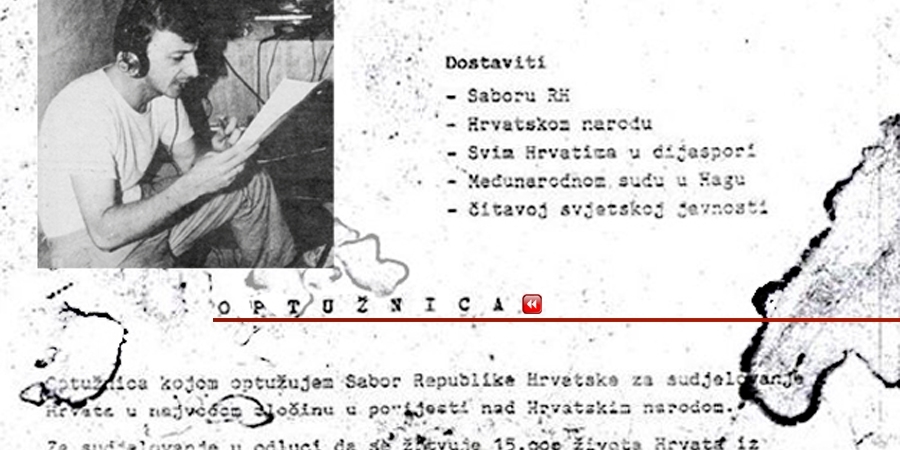
Hrvatski Radio Vukovar
On this day 31 years ago, his 31st birthday, while entering the hospital where he went to collect the latest reports on the wounded civilians and volunteers, he was injured by a shell fragment and remained under treatment in the Vukovar hospital. He kept reporting from the hospital and sent his last report on November 18, 1991. On the night of November 19-20, all traces of him were lost. Sinisa Glavasevic and the other wounded from the hospital were brutally murdered at the Ovčara camp for Croatian prisoners. His body was buried at the Zagreb Mirogoj cemetery next to his colleague, a radio technician, Branimir Polovina, who was also killed at Ovčara.
His warm human stories were collected into a book and published posthumously in 1992 under the title Stories from Vukovar. The book has been translated into German, English, and two editions in Esperanto. 24Sata also republished it in 2011. His stories inspired other works of art, such as documentaries and theatre plays. In Vukovar, one of the primary schools carries his name, and his two busts watch over the school and the building of Hrvatski Radio Vukovar.
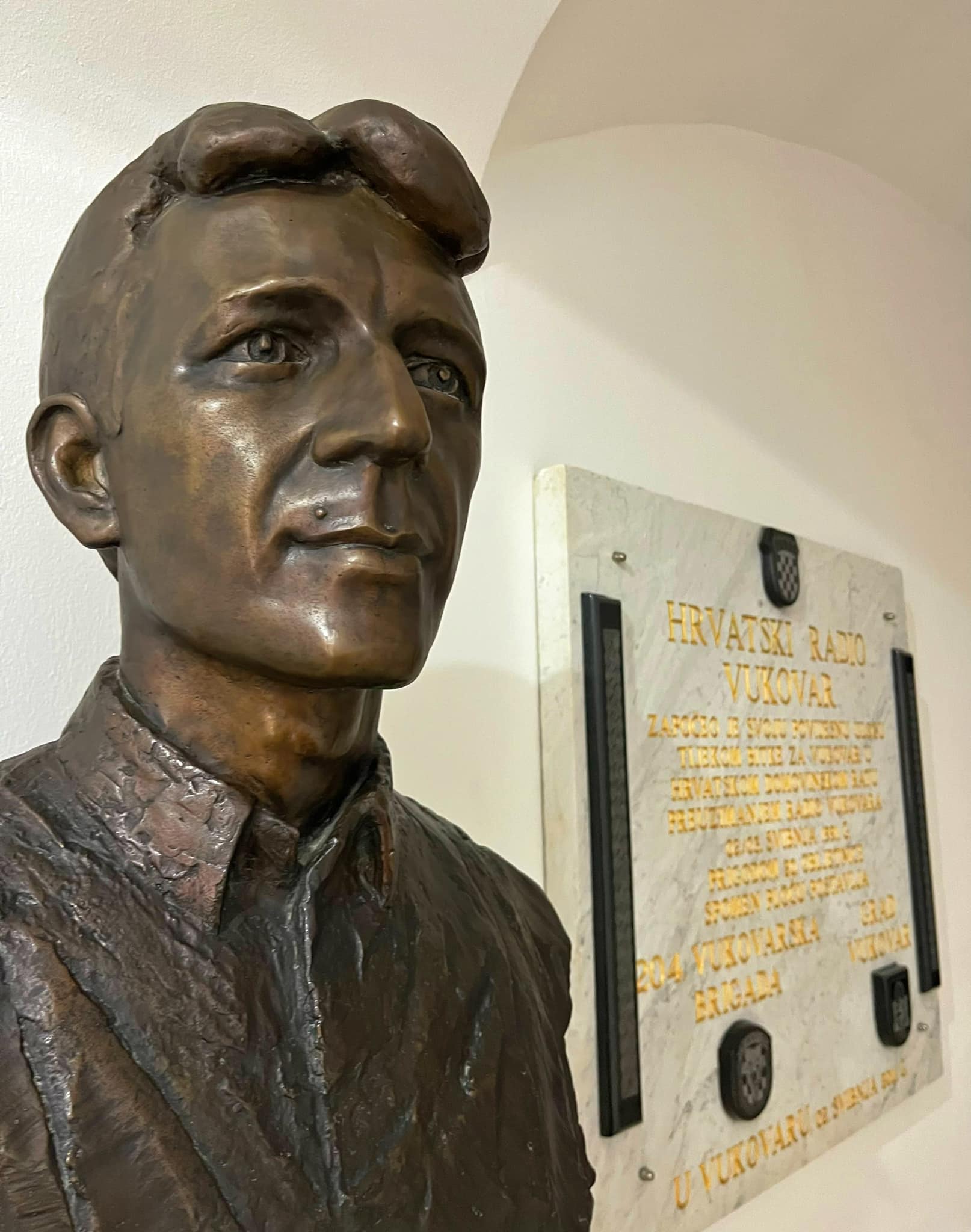
We spoke to Robert Rac, the director of Hrvatski Radio Vukovar, who shared his views on Sinisa Glavasevic's legacy. The foundations of the work of fifteen employees of today's Radio, he says, are those set by Sinisa Glavasevic and his colleagues, who were also tragically taken away by the war. His legacy lives on in the journalistic integrity they all share, with the single goal of sharing the truth above everything else. And his words found a way to not only live on in us but in actual tapes found in the ruins of the Radio's building in Vukovar. During the siege, the building was constantly shelled and was largely destroyed. Some of Sinisa's tapes, however, fell through the cracks into the basement, where a citizen found them while looking for something, anything of value left in the fallen city to live off. Not knowing what they were or having the technology to find out, he decided to wrap them up in a plastic bag and store them in his attic. Upon the return of the Radio's employees, they were stunned to find out that the tapes were preserved well enough and contained Sinisa's reports, thoughts, and interviews. They are faithful witnesses of the time. They were digitalised and kept in the archive, and are now publicly available.
It was people like Sinisa Glavasevic who helped the civilians in the occupied city keep going, who reassured them and made them feel like they weren't alone. He was the voice of the people, of the city, of hope. Let us carry on his legacy by sharing today's words of Hrvatski Radio Vukovar, as well as the translation of his essay (translated by Marko Puljić, Saint Louis, USA).
Siniša was killed, but his voice lives on among us.
Editor, thanks for everything.
"Who will watch my city, my friends, who will carry Vukovar from the dark?"
Us. Because the city is us. (HRV)
A Story About the City
I refrain from searching for all justice, truth, I refrain from attempts to let ideals arrange my personal life, I refrain from everything that until yesterday I considered essential for some good beginning or good end.
I would possibly refrain from myself, but I cannot.
Because who will remain if we renounce ourselves and flee into our fears.
Who will inherit the city? Who will watch it for me, when I am gone, while I am searching in the trash heaps of the human spirit, while I am as it is alone, staggering without myself, wounded, tired, feverish, while my eyes begin to wax before my personal defeat.
Who will watch my city, my friends, who will carry Vukovar from the dark?
There aren't shoulders stronger than mine or yours, and therefore if it isn't too much for you, if there still remains in you a youthful whisper, join us.
Somebody has touched my parks, the benches that still have your names carved into them, that shadow that you gave it at the same moment, and received your first kiss - somebody has simply stolen it all, because how do you explain that not even a Shadow remains?
There isn't that store window in which you admired your personal joys, there isn't that movie theater in which you saw the saddest film, your past has been simply decimated and you have nothing.
You must build anew. First your roots, your past, and then your present, and then if you still have the strength, invest in the future. Do not be alone in the future.
Do not worry about the city, it has been with you all this time. Only hidden. So that the murderer cannot find it. The city - it is you.
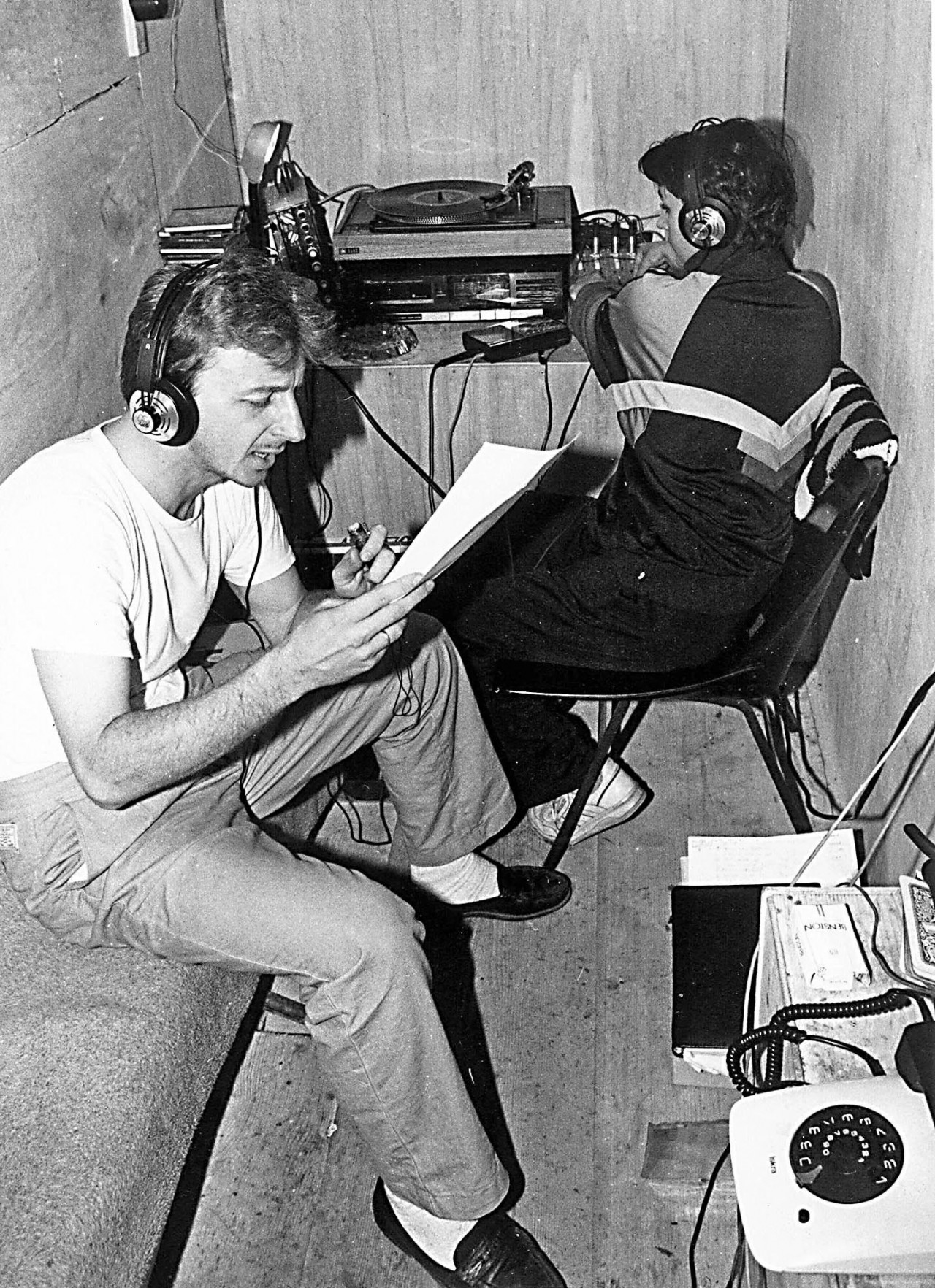
For more, make sure to check out our dedicated Lifestyle section.


